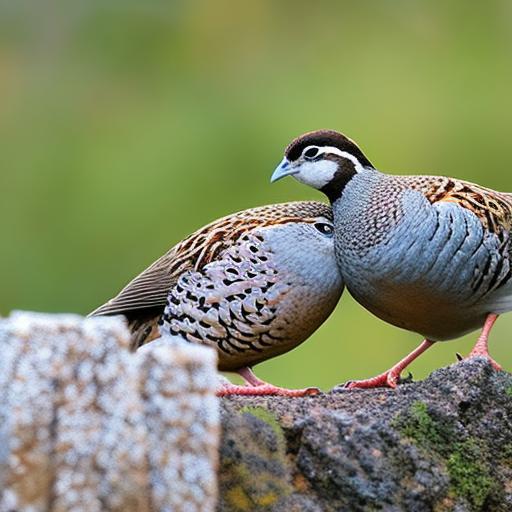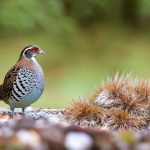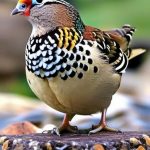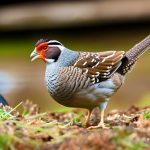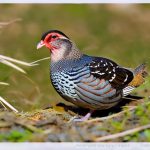When it comes to housing and shelter, it is crucial to provide a safe and comfortable environment for animals. This includes providing appropriate enclosures that are spacious enough to allow for natural behaviors and movement. For example, for larger animals such as horses or cows, a barn or stable with ample space to move around and lay down comfortably is essential. For smaller animals such as rabbits or guinea pigs, a hutch or cage with enough room to hop or run around is necessary. Additionally, the shelter should provide protection from the elements, such as rain, wind, and extreme temperatures. This can be achieved through the use of proper roofing, insulation, and ventilation.
In addition to physical shelter, it is important to consider the psychological needs of animals when it comes to housing. Providing enrichment such as toys, hiding spots, and climbing structures can help prevent boredom and reduce stress. For example, for birds, providing perches and toys can help keep them mentally stimulated. For dogs, providing chew toys and puzzle feeders can help keep them entertained. Overall, the goal of housing and shelter is to provide a safe, comfortable, and enriching environment for animals to thrive in.
Key Takeaways
- Housing and shelter are essential for providing a safe and comfortable environment for animals.
- Feeding and nutrition play a crucial role in maintaining the health and well-being of animals.
- Protection from predators is necessary to ensure the safety and security of animals in their habitat.
- Health and hygiene practices are important for preventing diseases and maintaining overall well-being.
- Socialization and space are important factors in promoting the mental and emotional health of animals.
Feeding and Nutrition
Feeding and nutrition are essential aspects of animal care that directly impact their health and well-being. It is important to provide a balanced diet that meets the specific nutritional needs of each species. This may include a combination of hay, grains, fruits, vegetables, and protein sources such as meat or insects. For example, herbivorous animals such as rabbits and horses require a diet high in fiber from hay and grass, while carnivorous animals such as cats and ferrets require a diet high in protein from meat.
In addition to providing the right types of food, it is important to consider the quantity and feeding schedule for animals. Overfeeding can lead to obesity and other health issues, while underfeeding can lead to malnutrition and deficiencies. It is important to monitor the body condition of animals and adjust their diet accordingly. Furthermore, providing access to clean water at all times is crucial for proper hydration and overall health. Overall, proper feeding and nutrition are essential for maintaining the health and vitality of animals.
Protection from Predators
Protection from predators is a critical aspect of animal care, especially for those kept outdoors or in rural areas. This may include providing secure enclosures such as fences or pens to prevent access from predators such as coyotes, foxes, or birds of prey. Additionally, it may be necessary to provide shelters or hiding spots within the enclosure where animals can seek refuge if they feel threatened. For example, providing a secure coop for chickens or a den box for rabbits can help protect them from potential predators.
In addition to physical barriers, it is important to consider other methods of predator control such as deterrents or scare tactics. This may include using motion-activated lights or sound devices to deter predators from approaching the enclosure. It is also important to regularly inspect the enclosure for any potential weak spots or vulnerabilities that could allow predators to gain access. Overall, protection from predators is essential for ensuring the safety and well-being of animals.
Health and Hygiene
Maintaining the health and hygiene of animals is crucial for preventing illness and disease. This includes providing regular veterinary care such as vaccinations, deworming, and dental care. It also involves monitoring the overall health of animals through regular physical exams and observation of their behavior and appetite. Additionally, it is important to provide a clean environment for animals by regularly cleaning their enclosures, removing waste, and providing fresh bedding or substrate.
In addition to physical health, it is important to consider the mental and emotional well-being of animals when it comes to hygiene. This may include providing opportunities for exercise and mental stimulation to prevent boredom and reduce stress. For example, providing toys and enrichment activities for animals can help keep them mentally engaged and prevent behavioral issues. Overall, maintaining the health and hygiene of animals is essential for their overall well-being.
Socialization and Space
Socialization and space are important considerations when it comes to animal care, especially for social species such as dogs, cats, and birds. Providing opportunities for social interaction with conspecifics or humans is essential for preventing loneliness and promoting mental well-being. This may include providing opportunities for playtime with other animals or regular interaction with caregivers. Additionally, it is important to provide enough space for animals to move around freely and engage in natural behaviors.
For example, dogs require regular exercise and playtime to prevent boredom and maintain physical health. Providing opportunities for walks, runs, and playtime with toys can help keep them mentally stimulated and physically fit. Similarly, birds require ample space to fly and explore their environment to prevent stress and behavioral issues. Providing a large enough enclosure with perches and toys can help keep them mentally engaged and physically active. Overall, socialization and space are essential for promoting the mental and physical well-being of animals.
Climate and Weather Considerations

Climate and weather considerations are important factors to take into account when caring for animals, especially those kept outdoors or in extreme climates. It is important to provide appropriate shelter and protection from extreme temperatures such as heat or cold. This may include providing shade or cooling options such as fans or misters during hot weather, as well as providing insulation or heating options during cold weather.
In addition to temperature considerations, it is important to consider other weather-related factors such as humidity, wind, and precipitation. Providing appropriate shelter that protects animals from wind and rain is essential for preventing stress and discomfort. Additionally, it is important to monitor weather forecasts and make adjustments to animal care routines as needed to ensure their safety and well-being. Overall, climate and weather considerations are essential for providing a comfortable and safe environment for animals.
Breeding and Reproduction
Breeding and reproduction are important considerations when caring for animals, especially for those kept for production or conservation purposes. It is important to carefully plan breeding programs to ensure the health and genetic diversity of offspring. This may involve selecting suitable mates based on genetic compatibility and desirable traits, as well as monitoring the reproductive health of breeding animals.
In addition to breeding considerations, it is important to provide appropriate care for pregnant or nursing animals to ensure the health of both the mother and offspring. This may include providing a suitable nesting area or enclosure for pregnant animals, as well as monitoring their nutritional needs during pregnancy and lactation. Additionally, it is important to have a plan in place for the care and placement of offspring once they are born to ensure their well-being. Overall, breeding and reproduction are important aspects of animal care that require careful planning and consideration.
If you’re interested in keeping Japanese quail outside, you may also want to explore tips for caring for geese goslings. Check out this informative article on how to care for goslings to learn more about raising and nurturing these adorable birds. Understanding the specific needs of different poultry species can help you create a thriving and diverse outdoor environment for your feathered friends.
FAQs
What are the benefits of keeping Japanese quail outside?
Keeping Japanese quail outside allows them to have access to natural sunlight, fresh air, and a more natural environment. It also provides them with more space to move around and exhibit natural behaviors.
What type of housing is suitable for keeping Japanese quail outside?
A suitable housing for keeping Japanese quail outside should provide protection from predators, adequate ventilation, and space for the quail to move around. It should also have a sheltered area for the quail to seek refuge from extreme weather conditions.
What should be considered when setting up an outdoor enclosure for Japanese quail?
When setting up an outdoor enclosure for Japanese quail, it is important to consider predator-proofing the enclosure, providing adequate shade and shelter, ensuring proper drainage, and securing the enclosure to prevent escape.
What should be the diet of Japanese quail kept outside?
The diet of Japanese quail kept outside should consist of a balanced commercial quail feed, supplemented with fresh greens, insects, and grit. Access to clean water should also be provided at all times.
What are the potential challenges of keeping Japanese quail outside?
Potential challenges of keeping Japanese quail outside include predation, extreme weather conditions, and the need for regular maintenance of the outdoor enclosure. Additionally, ensuring the quail have access to proper nutrition and healthcare can also be challenging.
Meet Walter, the feathered-friend fanatic of Florida! Nestled in the sunshine state, Walter struts through life with his feathered companions, clucking his way to happiness. With a coop that’s fancier than a five-star hotel, he’s the Don Juan of the chicken world. When he’s not teaching his hens to do the cha-cha, you’ll find him in a heated debate with his prized rooster, Sir Clucks-a-Lot. Walter’s poultry passion is no yolk; he’s the sunny-side-up guy you never knew you needed in your flock of friends!

